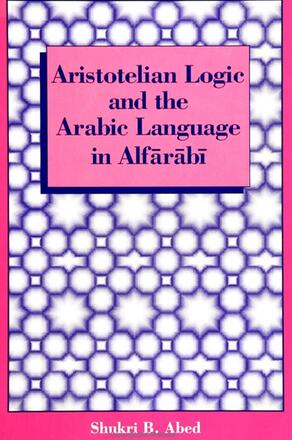
Aristotelian Logic and the Arabic Language in Alfārābī
Alternative formats available from:
Description
This book explores the reaction of tenth-century Arab philosopher Abu Nasr Alfarabi to the logical works of Aristotle. From numerous short treatises the author develops a systematic and comprehensive topical survey of Alfara bi's logical writings.
The book is divided into two major parts: language as a tool of logic (Chapters 1-5) and logic as a tool with which to analyze language (Chapter 6). The first five chapters deal with Alfarabi's analysis of the meanings of various terms as they are used in logic and philosophy. Alfarabi refutes the Arab grammarians who claimed that Arab logicians were building a language within a language and shows that the philosophical meanings of terms are in fact their most original and essential meanings. The final chapter deals with Alfarabi's analysis of certain aspects of the Arabic language (such as copula) and demonstrates that Arabic, like any natural language, conforms to universal logical structures of which natural languages are only a concrete expression.
Shukri B. Abed is a Senior Research Fellow at the Harry S. Truman Research Institute of the Hebrew University of Jerusalem.